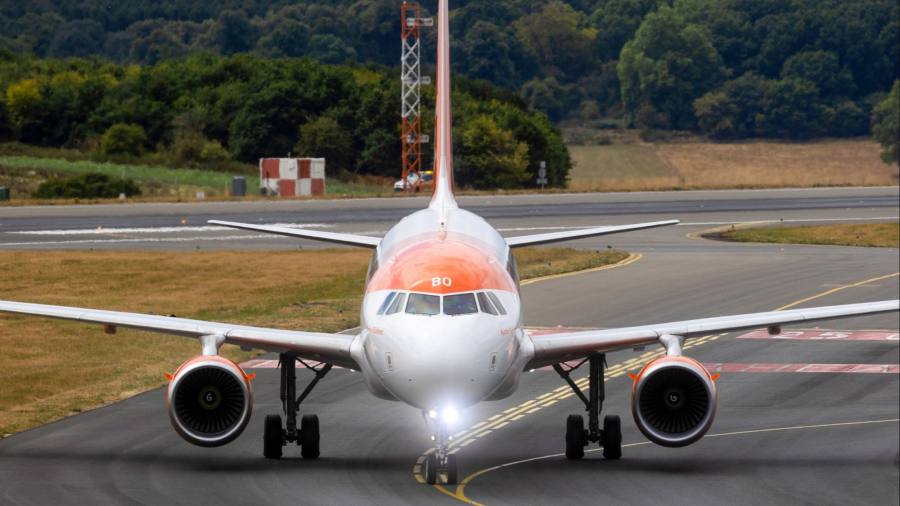EasyJet on Thursday said it expected to return to operating at pre-pandemic capacity for the peak European summer season.
Revenues surged 80 per cent in the first half while strong passenger growth sharply reduced losses in the traditionally quieter winter months, it said.
The company’s shares were up 4.4p in lunchtime trading in London, at 524.8p.
The outlook from the UK-based low-cost airline confirms the picture painted by other European carriers of a strong post-pandemic resurgence in demand for flights and travellers’ willingness to pay far higher fares.
Chief executive Johan Lundgren said there had been strong “booking momentum” since the start of 2023.
“What we can confirm today is that the strong demand that’s reflected in the booking trend is continuing really across the whole network,” Lundgren added.
Pre-tax losses for the six months to March 31 were £415mn, down 25 per cent compared with the same period last year, while passenger numbers were up 41 per cent.
Load factor — the proportion of available seats sold — improved by 10 percentage points to 87.5 per cent. First-half revenue rose to £2.7bn.
EasyJet’s improved outlook follows a revamp of parts of its network, including a cutting of capacity for flights from Berlin that generated a first-half exceptional loss of £4mn to reflect the cost of surrendering slots at the city’s Brandenburg airport.
Lundgren said capacity in most of the company’s markets in the July to September quarter would be greater than in summer 2019, the last before the coronavirus pandemic.
“Overall, if we take the whole of the network we’re back to pre-pandemic levels because we see that the European consumer sentiment continues to be very strong and robust,” he said. “There’s a very strong demand for flights and travel.”
EasyJet said revenue per seat in the current April-to-June quarter would be up more than 20 per cent — a slight upgrade from a previous projection of about 20 per cent.
The airline said it would offer about 56mn seats on flights in the six months to September 30, up 9 per cent from the same half of the previous year. Capacity in the July-to-September quarter would be close to pre-pandemic levels.
EasyJet forecast costs per seat excluding fuel would be “broadly flat” for the six months to September 30.
The company also predicted that the recovery would bring forward the delivery date for its existing financial targets.
Among the targets is an annual pre-tax profit contribution of £100mn from its holiday business, which packages accommodation with flights. It projected that the business would produce pre-tax profits of more than £80mn for the year to September 30.
Lundgren said the medium-term target had been set for the 2025-26 financial year.
“We definitely think that will come in before that,” he said, while declining to say how much earlier than anticipated the target would be hit.
Among the initiatives announced on Thursday was a new base for the airline at England’s Birmingham airport, which Lundgren said would create “hundreds of jobs”.
Read the full article here




